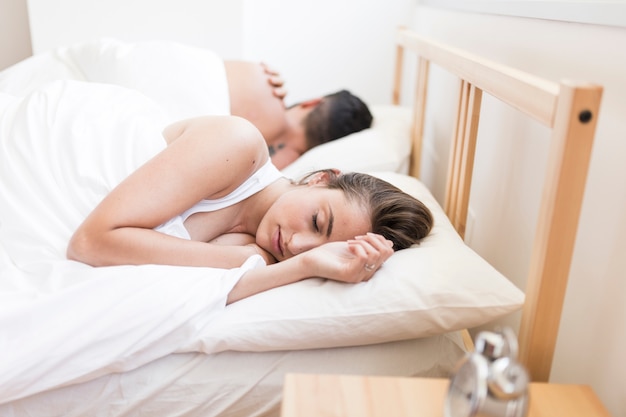
Sleep can really set the tone for your entire day. We all know that health is wealth, so getting good-quality sleep is crucial. However, in today’s busy world, many of us struggle to carve out the time for the proper rest we need.
A poor night’s sleep can negatively impact your body in several ways, including causing digestion problems, increasing the risk of heart disease, and contributing to obesity. To stay productive and focused throughout the day, it’s essential to get 7-9 hours of good sleep each night. Here are some tips to help you sleep better.
First, creating an environment with minimal noise and no intrusive light from devices like alarm clocks and phones is crucial, especially for light sleepers. Your bedroom should have a peaceful and relaxing vibe, which you can achieve with a little preparation.
Caffeine is widely consumed in the U.S. as it boosts performance, keeps us alert, and helps us focus. However, drinking caffeine later in the day can make it challenging for your brain to relax and prepare for sleep.
It might seem obvious, but napping for several hours during the day can make it difficult to fall asleep at night. Instead, try to limit yourself to short naps during the day.
Alcohol consumption can lead to sleep disorders. Drinking alcohol before bed can wake you up in the second half of the night, making it hard to fall back asleep.
Our bodies have a natural circadian rhythm that operates on a cycle from sunrise to sunset. Maintaining a consistent sleep pattern can improve your sleep quality. Irregular sleeping patterns and late nights can throw off this rhythm, leading to trouble falling asleep and waking up on time.
Bedroom temperature significantly impacts sleep quality. Generally, a cooler room temperature aids in releasing sleep hormones, helping you get better sleep. This, of course, varies from person to person.
Late-night eating can disrupt the natural release of melatonin and other hormones, impairing sleep quality, although some foods can help you sleep if consumed before bedtime.
If your mind is not relaxed, falling asleep can be tough. Try calming your thoughts with a hot shower, low-volume soft music, or reading a book before bed. These activities can help relax you and make it easier to fall asleep.
Many people overlook the importance of a comfortable mattress and pillows. An uncomfortable bed can lead to severe back pain, so it’s wise to change your bedding every 5 to 8 years. Pillow shams can also provide additional support, helping your body relax.
Daily exercise is vital not only for staying fit but also for getting good sleep. Studies show that regular exercise can help you fall asleep faster and improve sleep quality by 55%.
If frequent nighttime bathroom trips disrupt your sleep, you might be experiencing a condition known as Nocturia. To minimize this, try to drink fluids earlier in the evening and use the bathroom right before bed.
Sleeping with uncomfortable blankets can ruin your rest. Opt for warm, cozy blankets instead. A throw blanket, for example, can provide added comfort and improve your sleep experience. Faux fur throw blankets are small, cozy, and make you feel safe and sound, making them a great gift or personal purchase.
Quality sleep is essential, and while it can be challenging to prioritize, aiming for 7-9 hours of sleep each night can make a big difference. Try these tips to improve your sleep and enjoy better rest.